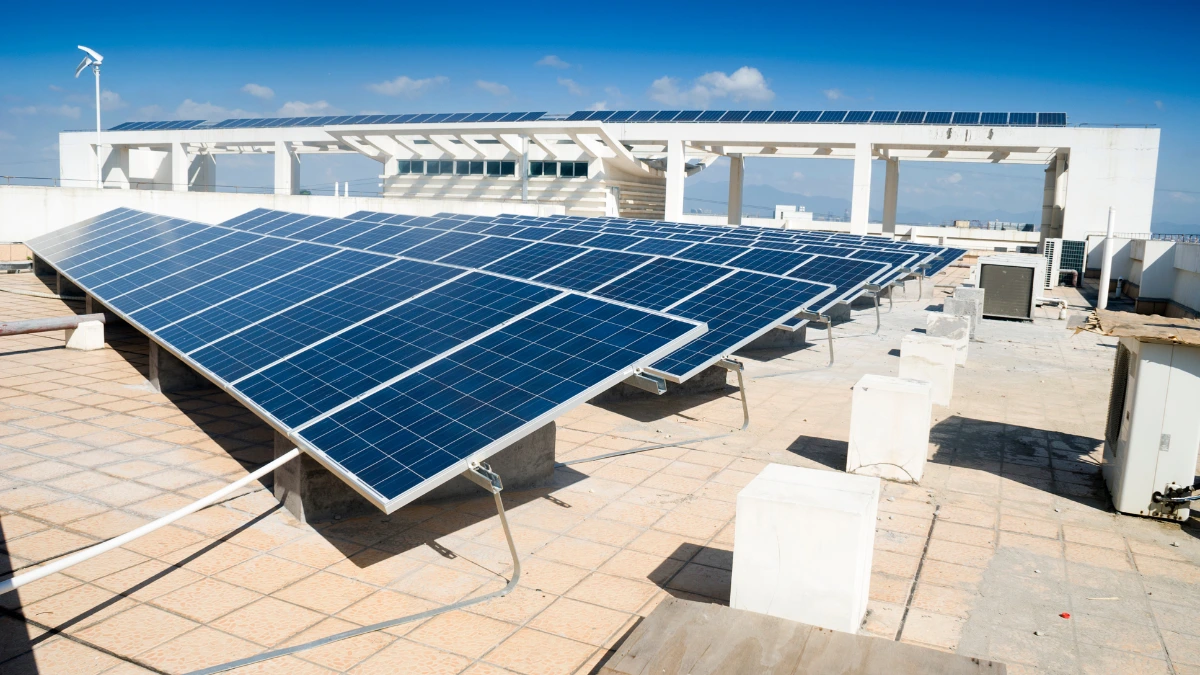The presence of a solar power system provides maximum sustainable energy use to increase productivity. One type of solar power system, according to its configuration and use, is the solar on-grid system, which offers several key functions and advantages.
The functions of a solar on-grid system include utilizing solar to integrate with the public power grid. Moreover, the advantages include being environmentally friendly, potential to increase revenue, and long-term investment.
This article will give you information on solar on-grid systems, including definitions, functions, and the advantages they have.
What is a Solar On-Grid System?

Solar on-grid system is a type of system that operates while still connected to the public grid. With this system, if there is excess energy from what has been used for household or business needs, it will be fed back to the public grid.
On-grid systems do not require batteries for storage, as the electrical energy used at night or during cloudy weather will be drawn from the public grid. However, users must be prepared for the system to shut down if there is a mainstream power outage.
The Functions
The solar on-grid system has several functions, from utilizing solar to integrate with the public power grid. Here are some of its functions:
- Utilize solar energy efficiently: The system makes optimal use of solar energy to generate electricity.
- Reduces electricity bills: By utilizing the solar energy generated, it reduces dependence on the public power grid.
- Integrates with the public power grid: The system is not stand-alone, but integrated with the public power grid, which makes electricity availability more stable.
The Advantages

The solar on-grid system has several advantages, including being environmentally friendly, potential to increase revenue, and long-term investment. Here are some of its main advantages in detail:
1. Environmentally friendly
Environmentally friendly is an advantage for solar on-grid systems. Solar energy as the main source of this system does not produce greenhouse gas emissions and pollution, so using it will contribute to environmental conservation efforts.
2. Stable supply
One of the advantages of a solar on-grid system is its stable supply. Being integrated into the public power grid makes the electricity supply more stable even when the solar panels do not produce enough energy due to cloudy weather.
3. Potential to increase revenue

Solar on-grid systems that are integrated with the public power grid are connected to a net metering system that allows generating revenue for users. When the solar panels produce excess energy, the excess can be sold back to the public electricity service.
4. Easy maintenance
Easy maintenance is another advantage of solar on-grid systems. Because it does not require a storage battery, it does not require special maintenance for this system.
5. Long-term investment
Another advantage of solar on-grid systems is as a long-term investment. Although it requires a considerable initial cost, using this system in the long run will save sustainable electricity costs.
Those are the definitions, functions, and advantages of a solar on-grid system that you need to know. Another thing to note is that solar power systems on the market must pass the certification test from the Directorate General of Digital Infrastructure (DJID).
Smart solar power system regulation is based on the Ministerial Decree (KEPMEN) No.260 of 2024 and No. 12 of 2025, which requires all radio frequency-based devices to meet specific technical standards before being sold in the country.
With a DJID certification, users can feel calm about using a smart solar power system device whose quality and security are guaranteed. For manufacturers or importers of smart solar power system devices, obtaining certification from DJID is a mandatory step before the device can be officially marketed in Indonesia.
To simplify the certification process, Type Approval Certification Services for ICT Products are available to assist with this process as a reliable solution. [UN].

